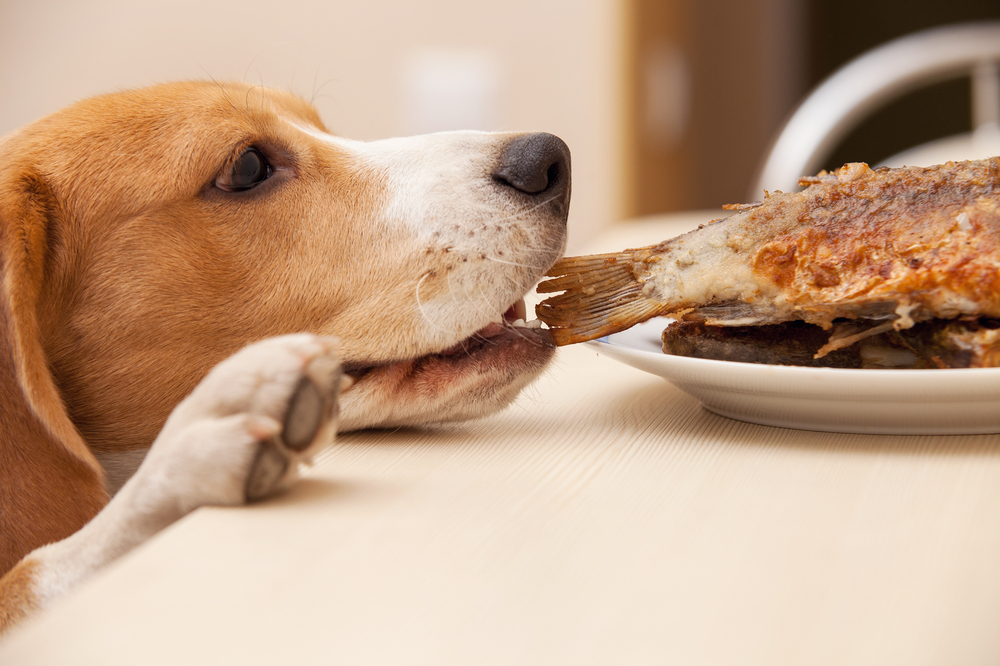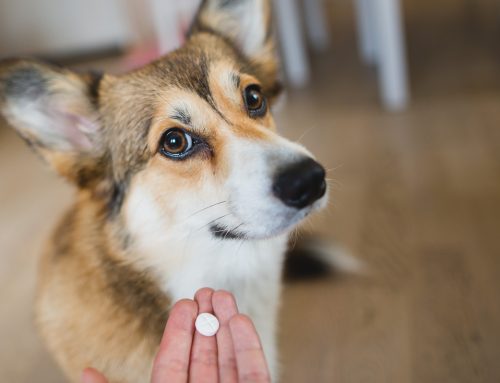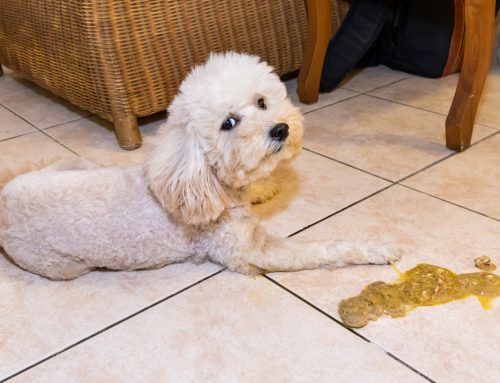The holiday cooking and baking season will be here soon, so you may be pouring over cookbooks, scouring the internet for new recipes, or sorting through the pile of worn recipe cards in search of a time-honored favorite. While planning the menu and stocking the kitchen, pet owners should also remind themselves about the foods that are toxic or dangerous for their furry friends, to avoid food-related holiday mishaps.
Pet toxins in the pantry
While looking through the pantry, keep an eye out for these toxic foods:
- Chocolate — Darker and less sweet chocolate types, such as baker’s chocolate and dark chocolate, are the most dangerous, although other chocolate types can also be problematic. Ingesting chocolate can cause vomiting, diarrhea, heart rate or rhythm changes, hyperactivity, tremors, high body temperature, increased thirst, or high blood pressure.
- Raisins — Raisins are great in fruitcake, cookies, or bread pudding, but may cause vomiting, diarrhea, abdominal pain, and irreversible kidney damage if ingested by your pet. Dogs are more susceptible to raisin toxicity, although cats apparently can also be affected. The toxic effects do not appear to be related to the number of raisins ingested, because only a few raisins are potentially life threatening.
- Xylitol — This artificial sweetener is a sugar substitute for sugar-free baked goods, but can cause dangerously low blood sugar and/or liver damage when consumed by dogs and possibly cats. Xylitol can also be found in other products, such as peanut butter, other nut butters, medications or supplements, sugar-free gum, protein drinks or powders, and sugar-free ice cream.
Pet toxins in the refrigerator
Beware of these potentially toxic cold foods:
- Alcohol — When you grab a cool beer or pop the cork on a bottle of wine, ensure that your pets don’t partake, as well. Lapping up a spilled alcoholic drink or sneaking some from your cup can cause incoordination, weakness, vomiting, weakness, or collapse, or decreases in blood sugar, respiratory rate, blood pressure, or body temperature.
- Grapes — Eating grapes poses the same risks as raisins.
- Raw eggs or meat — Snacking on uncooked eggs and meat can cause vomiting or diarrhea due to potential contamination with bacteria such as Salmonella or E coli, and the bones may lodge in or poke through the esophagus, stomach, or intestines.
Pet toxins on the counter
If you have a counter-surfing pet, they could easily encounter these toxins:
- Onions or garlic — Some pets may bite a garlic clove or onion, while others are more likely to eat onion- or garlic-containing foods. Either way, pets may exhibit gastroenteritis signs such as vomiting, diarrhea, and abdominal pain, or anemia signs such as lethargy, pale mucous membranes, weakness, and increased heart and respiratory rates.
- Bread dough — The delicious bread dough rising on your counter that your pet can’t resist may release gases in their stomach that can cause bloat and/or stomach torsion. Alcohol toxicity may also occur because of the ethanol-producing yeast.
Pet toxins at the dinner table
No matter how good your pet is at begging, they should not have the following dinner table foods:
- Fatty foods — Avoid sneaking your pet a fatty piece of ham or steak, turkey trimmings, grease, or other high-fat foods because, while delicious, these foods can lead to pancreatitis (i.e., inflammation of the pancreas). Mild pancreatitis may cause only vomiting, diarrhea, abdominal pain, and decreased appetite, but more severe cases can cause organ failure or death.
- Dishes containing other toxic foods — You can easily miss toxic foods that are cooked into other dishes, but be vigilant to avoid accidentally feeding your pet a harmful food.

Pet toxins in the garbage bag
Ensure that you keep the garbage bag out of your pet’s reach so they don’t help themselves to:
- Turkey carcasses, ham bones, or meat scraps — The turkey or ham bones can cause a stomach, intestine, or esophagus obstruction or perforation, and all three foods can cause pancreatitis.
- Food wrappers, foil, or napkins — These food-laden items can get stuck in your pet’s esophagus, stomach, or intestines, and require surgical removal.
If your pet does eat a toxic or dangerous food, or if you are unsure if a food is toxic or dangerous, immediately contact Country Valley Veterinary Clinic during business hours, or a veterinary emergency clinic, ASPCA Animal Poison Control Center, or Pet Poison Helpline after hours. Your pet will have the best chance of a full recovery with no lasting effects if they are treated promptly and aggressively, so do not take a “wait and see” approach—despite having to leave your family dinner earlier than expected.
As you plan your holiday meals, ensure you keep these toxic or dangerous foods in mind, and contact our Country Valley Veterinary Clinic team with any questions. We may not be able to suggest the best recipes for an upcoming dinner, but we can definitely help keep your pet safe, whether that means advising you on foods to avoid, or treating your pet after a holiday snack gone wrong.







Leave A Comment